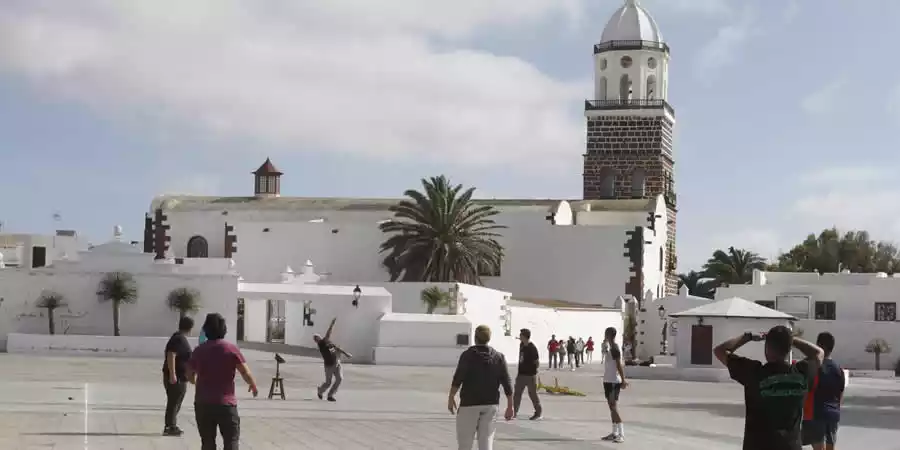
Pelotamano (Ballhand) is a traditional cooperative-opposition sports game currently practiced on the island of Lanzarote, where it has preserved the ancient forms of ball games. There are also references to its presence on other islands such as Fuerteventura, La Palma, and Gran Canaria.
The earliest record of ball games in the Canary Islands dates back to 1616. Navarro Adelantado (1989) traces its origin to the Norman conquerors who arrived in the 15th century on the island of rabbits, as the jeu de paume, or long game, was highly popular throughout Europe at the time. Later Castilian settlers also contributed to its spread. In contrast, Hernández Auta (1989) suggests a dual route of introduction—Norman or Castilian—although the latter seems more likely due to their greater presence.
This activity involves two teams of five players each, although less commonly, teams of four or six players can participate. The game is played on a field that is 8–9 steps wide and 60–70 steps long.
Some unique features of this game include the absence of a referee—players themselves resolve disputes and keep score—the lack of a time limit (games last as long as there is sunlight), and the preparation of a drink called punch, made with water, rum, sugar, cinnamon, and lemon, which players drink during breaks.
Due to the characteristics of the game and the complexity of many of its plays and situations, active participation is essential for fully understanding how the game unfolds.
Currently, ballhand is on the verge of disappearing as a common practice, with fewer than twenty players remaining and only three or four elders who played it during its peak still alive. In the past, it was especially popular in the towns of Tinajo, La Vegueta, Soo, Tiagua, and Teguise, where it was played on Sundays or holidays for several hours.